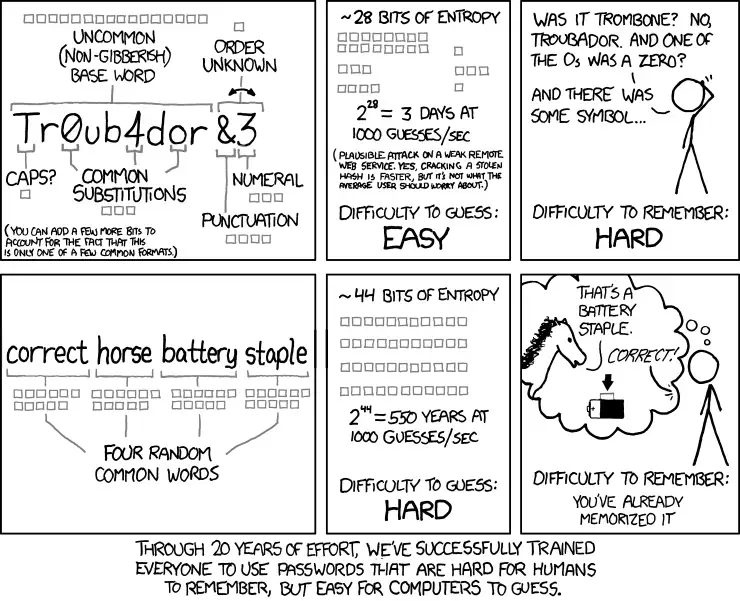Use a password manager. Every account gets a different (and strong) password.
All cool and dandy, until you have to type that random 50 letter string on your TV.
Many PW managers let you generate passphrases, which are all around better than random strings. Length is the most important factor so
finance-caffeine-utopia-redress-unseen
Is way stronger and easier to remember (and type) than
Fl7$j4FWw)&5O
Is it really safer? I mean when trying to bruteforce a password, one would have to make a guess whether it’s a passphrase or not. But if you decided to check for pass phrases, wouldn’t the one you posted be cracked in 5 times the amount of words in that dictionary? I’m not sure how large the vocabularies of the generators are, but I would guess a random 17 char password might be safer than a 5 phrases password?
but I would guess a random 17 char password might be safer than a 5 phrases password
And you would be very wrong about that. A 5 phrase password has entropy. “finance-caffeine-utopia-redress-unseen” is 28 characters. If you add in a different symbol between the words and add a number somewhere, this password becomes incredibly difficult to brute force.
I’ll let xkcd explain it better.

Cybersecurity is expensive and doesn’t contribute directly to profits. It can prevent serious damages (legal, financial, and reputation) but that requires long-term thinking. Most executives don’t look past quarterly earnings.
Neoliberals: “OK how about we keep doing the thing that makes them care only about next quarter, but give them a $1 fine every time they’re negligent?”






